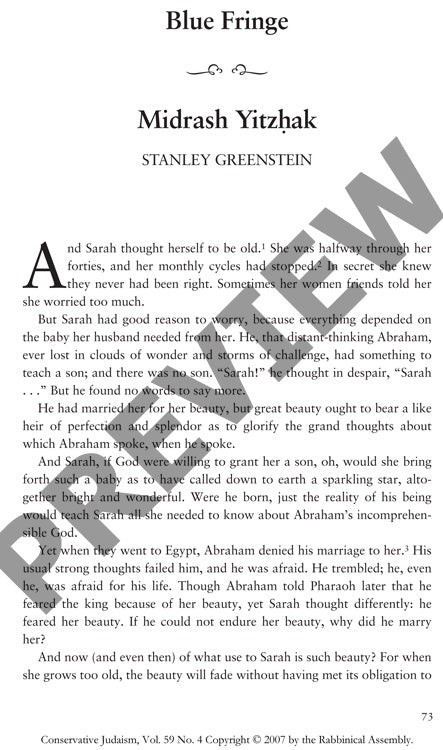Midrash Yitzhak
Couldn't load pickup availability
This midrashic narrative reinterprets the biblical account of Sarah, Abraham, and Isaac through a psychological and rationalist lens, exploring the paradoxes inherent in the traditional text. The author employs literary methodology to reimagine key episodes from Genesis 12-22, presenting Sarah as a complex figure grappling with infertility, beauty, and divine promises, while depicting Isaac as potentially cognitively impaired. The narrative suggests that Sarah's advanced maternal age resulted in developmental disabilities in Isaac, which precipitated Abraham's willingness to sacrifice his son when Isaac rejected the paternal conception of God. Through close textual analysis and creative midrash, Greenberg proposes that the Akedah (binding of Isaac) served as a transformative pedagogical moment that enabled Isaac to comprehend his father's ineffable religious understanding. The study demonstrates how midrashic interpretation can address theological difficulties by incorporating contemporary knowledge about geriatric pregnancy and developmental disabilities. The author concludes that Abraham's radical act of faith created a paradigmatic moment that transmitted incomprehensible divine knowledge across generations, ultimately satisfying God's covenant requirements despite the psychological trauma inflicted on the family unit.

More Information
-
Physical Description
-
Publication Information
Published 2007
ISBN
-
Publication Credits
Stanley Greenstein

